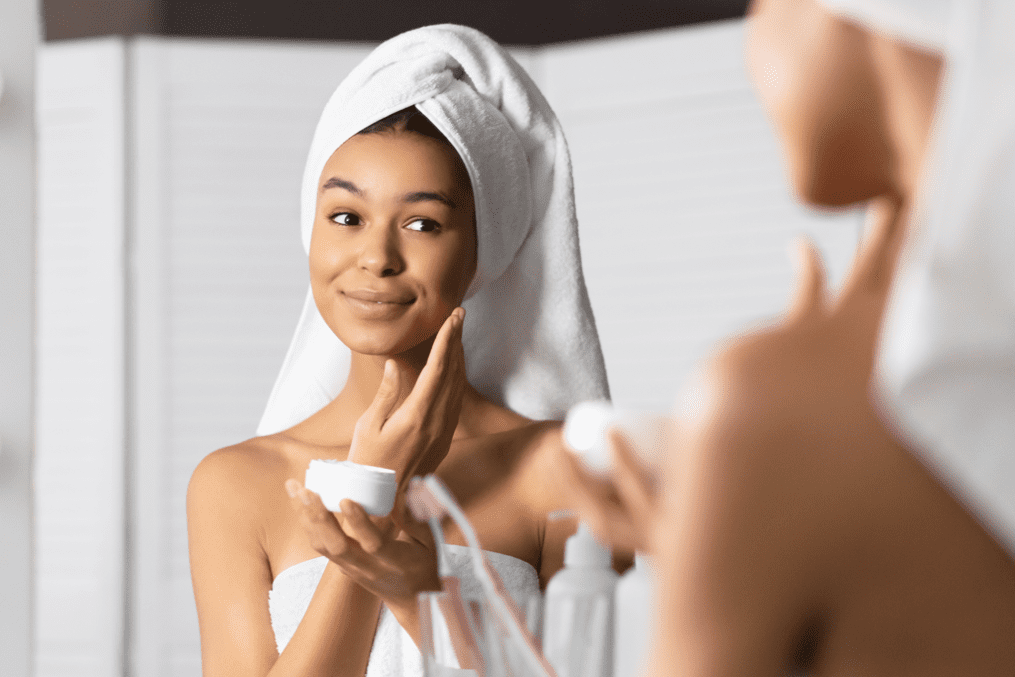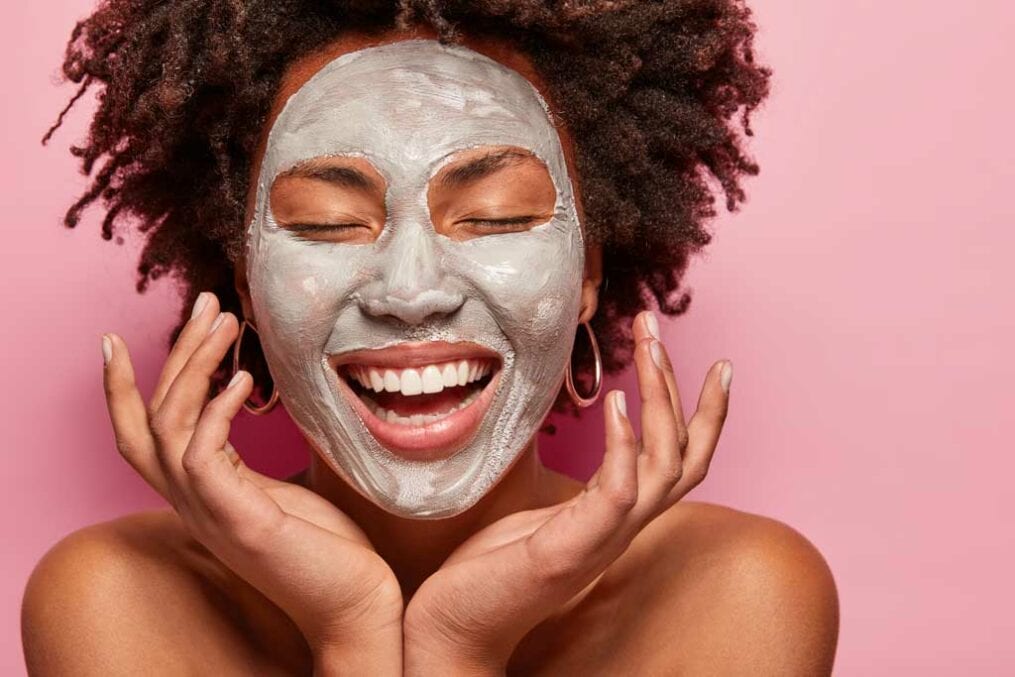The new rules of winter skincare

They say there’s no bad weather, only bad clothing – and you’ll benefit from applying this old adage to your skincare routine as the seasons change. Thanks to the threefold challenges of chilly temperatures, harsher winds and central heating, the skincare goalposts have shifted – and it’s time to refresh your regime if you haven’t already. The beauty industry has also recognised a growing demand for tailored, weather-appropriate skincare, with season-specific facial product launches doubling in recent years.
‘Winter weather affects the protective skin barrier, leaving it drier, duller and more susceptible to acne breakouts,’ says consultant dermatologist Dr Nick Lowe. ‘The background pigment (ie the golden tan you waved goodbye to last September) is also reduced, making problems such as redness, acne and age spots more pronounced.’ Changing your washing and moisturising routine is key for healthy skin. Here’s how to mitigate the effects of winter and get your glow back.
Hydration station
Winter is synonymous with dry skin, a problem that affects nine in 10 of us. ‘Faced with low humidity, cold winds and central heating, skin loses its ability to maintain and trap moisture in the cells,’ explains Dr Lowe. This not only means your face will feel tight and uncomfortable, but it will also look dull and more aged: ‘When the skin surface is dry, it doesn’t reflect light. This has a shadowing effect making fine lines more noticeable.’
So what do you do? First of all, reduce your shower temperature – as much as the inclement weather will make you want to turn up the hot tap, it’s not doing your skin any favours. ‘Heat further damages the delicate skin barrier that retains moisture,’ says Dr Lowe.
Next, it’s time to invest in new products. Throw out face washes containing sodium-laureth sulphate (SLS), which might further irritate dry skin, and switch to gentler alternatives which are pH-balanced, to help repair the skin barrier, advises Dr Lowe.
To keep your skin smooth and soft, use a gentle exfoliator no more than three times a week after cleansing. Follow up with a moisturiser, which you should be applying at least daily. ‘This plumps skin cells by adding water content, which makes your complexion brighter,’ says Dr Lowe. Make sure that you upgrade your usual moisturiser to a richer face cream that is best for winter, to combat dry skin.
Colour chameleon
If you have a tendency to redness, the winter weather can make it a whole lot worse. ‘Redness tends to get more pronounced in those prone to it because of changing temperatures. If you go from cold winds to central heating indoors, you’ll experience the constriction and enlarging of blood vessels as a reaction to heat and cold.’ And as your overall skin colour gets paler, imperfections like sun spots will be put in the spotlight, too.
To make sure the discolouration doesn’t get worse, invest in a good SPF (yes, contrary to what we’ve said, there’s one thing you shouldn’t change in winter and that’s suncare). ‘Even on gloomy winter days, UV rays can penetrate your skin – apply an SPF-containing moisturiser over your face, neck, upper chest and hands,’ advises Dr Lowe.
Those suffering from red, inflamed skin should try moisturisers containing niacinamide (an anti-inflammatory) and pantothenic acid (aka vitamin B5, a soothing ingredient). As for the dark spots, there’s a quick and effective solution: ‘Brown spots and discolouration can be treated at a dermatology clinic with targeted lasers and pulsed light treatments.’
Spot the difference
Plagued by red, angry blemishes? You’re not alone – around 40-55 per cent of women report having adult acne, and winter weather can further aggravate the condition. ‘A build-up of flaking skin cells can block your pores, allowing acne bacteria to build up behind the blockage,’ explains Dr Lowe. The other factor? Put simply, it’s your emotional response to the dark and cold. ‘When we feel low, it prompts a stress-induced hormone release which makes acne worse,’ says Dr Lowe. No, we never said it was fair.
But there are skincare hacks that can help. First up, buy a gentle anti-acne facial polish to tackle those blocked pores, to be used twice weekly. Harsh anti-acne skincare products should be swapped for gentler alternatives, as your skin is already battling the severe weather conditions, but what you can do is use an anti-acne serum to put on under your moisturiser, to work throughout the day.








